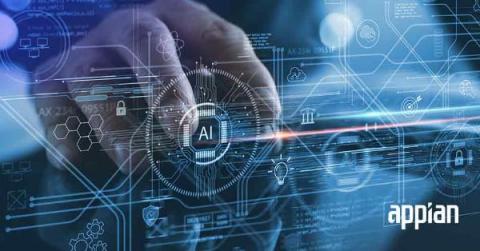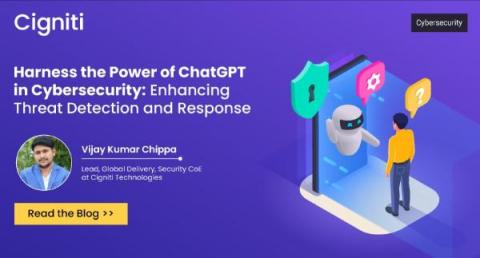Systems | Development | Analytics | API | Testing
January 2024
Our product vision for analytics in the age of AI
Achieving Trusted AI in Manufacturing
A Data-Agenda at Davos: Promoting the Promise of AI
Is AI Going to Replace QA Jobs? | Sidharth Shukla | #softwaretesting #softwaretestingjobs #qajobs
SmartBear Advances GenAI-Powered Development, Acquires Reflect to Innovate Intelligent Testing Solutions
Top 3 Healthcare and Life Sciences Data + AI Predictions for 2024
AI and Privacy: 3 Things Leaders Should Know for 2024
Easily Train, Manage, and Deploy Your AI Models With Scalable and Optimized Access to Your Company's AI Compute. Anywhere.
How Does AI Model Training Work?
Top Data + AI Predictions for the Public Sector in 2024
Unleash the Power of AI: Develop a Question Answering Service with OpenAI and Ballerina
Canva Brings AI-Driven Design to the Snowflake Data Cloud
Elevating AI in Analytics: A Closer Look at Snowflake and ThoughtSpot
AI-Powered Visual Testing in TestComplete
Harness the Power of ChatGPT in Cybersecurity: Enhancing Threat Detection and Response
What is an AI Gateway?
Implementing Gen AI in Practice
Ethical considerations in AI-powered software testing
Hitting the Ground Running with Generative AI
How generative AI will change the nature of work
Generative AI is a powerful tool for rapidly creating and iterating on content of all kinds.
Top 4 Data + AI Predictions for Telecommunications in 2024
The sheer breadth of data that telecommunications providers collect day-to-day is a huge advantage for the industry. Yet, many providers have been slower to adapt to a data-driven, hyperconnected world even as their services — including streaming, mobile payments and applications such as video conferencing — have driven innovation in nearly every other industry. The speed with which generative AI will change how we work, live, communicate and entertain ourselves is nearly unfathomable.
Revolutionizing Hurricane Property Insurance: The Dynamic Duo of Imaging Data and Generative AI
A catastrophe hazard is a severe and widespread event that causes significant damage and financial loss. These events are frequently natural disasters or large-scale human-made incidents that affect expansive and contemporary claims. Catastrophe hazards pose substantial trouble to insurers, as they can lead to a high volume of claims within a short period, potentially impacting insurance companies’ financial stability.
Real-time data engineering trends: 2024
If 2023 was the year we woke up to how generative AI would change our world, 2024 is the year we realize the change. The real-time AI-driven enterprise may not be pixel-perfect yet, but we’re well on the way. Gen AI has a knock-on effect on all the trends and challenges we will see in 2024. Here’s our take.
How #ChatGPT Acquires Its Knowledge? | Raju Kandaswamy | #SoftwareTesting #GenerativeAI
Interview with Co-founder and CEO, Seung Oh
For the next interview in our series speaking to tech founders from around the world, we’ve welcomed Seung Oh, Co-Founder and CEO of Data B, the company behind Engram, the first AI-powered writing platform designed for non-native English speakers.
4 AI Privacy Issues-and How to Combat Them
Artificial intelligence is changing the world. With use cases ranging from content generation to deep data analysis to detecting health issues, AI can greatly improve lives and enhance business outcomes. And with the explosion of generative AI services and large language models, we can expect AI to become even more ubiquitous than it already is. But AI isn’t perfect. In particular, AI privacy issues put organizations at risk or prevent adoption in the first place.
Our Secret to Customer-First Account Management? Using an LLM-Powered Chatbot for Sales Teams
Snowflake account managers need their fingers on the pulse of which workload shifts or performance optimizations could improve customer experience. Yet without an all-encompassing view of their customers, sales teams have to piece together customers’ wants and needs through duplicate CRM accounts and various BI tools and dashboards.
8 AI Automation Examples: A Strategic Roadmap to Transform Your Business
AI automation is changing the game in business operations. For many companies, global competition is heating up fast on an increasingly crowded playing field. In the past, business leaders knew their competitors and how they operated. But now, executives across industries have to look over their shoulders for new challengers that arrive with surprising speed from virtually any corner of the globe.
Is Your Financial Services Organization Ready to Leverage Generative AI?
As an industry built on data, financial services has always been an early adopter of AI technologies. In a recent industry survey, 46% of respondents said AI has improved customer experience, 35% said it has created operational efficiencies, and 20% said it has reduced total cost of ownership. Now, generative AI (gen AI) has supercharged its importance and organizations have begun heavily investing in this technology.
2024 Predictions in AI
BigQuery integrates with Document AI to help build document analytics and generative AI use cases
With the integration of BigQuery and Document AI, you can extract insights from document data and build new large language model (LLM) applications.
Simplify speech analytics with BigQuery, powered by Vertex AI
Vertex AI transcription models in BigQuery let you transcribe speech files and combine them with structured data to build analytics and AI use cases.
Become More Efficient with These 6 Applications of AI
Businesses are in a persistent productivity slump that could last through 2030, according to a 2023 World Bank study. The tech boom that powered innovation and growth over the last three decades is fading. Many companies are counting on artificial intelligence (AI) to boost operational efficiency and counteract these alarming trends.
AI and LLMs: How to navigate these technologies to build trusted AI
Navigating the Fast-Moving Future: Cloud, Data, and Sustainability and AI
Best Practices for Usage-based Billing to Monetize Gen AI
Artificial intelligence based APIs are reshaping traditional subscription models thanks to their unique monetization frameworks. These API products enable companies seeking tailored solutions in automation and AI workflows, departing from one-size-fits-all UI approaches and embracing a highly customizable experience. Originally designed for internal platforms, APIs built with AI are now evolving into revenue gateways, transforming them into strategic assets contributing directly to company revenue.
2024 AI Outlook: 4 Trends AI Experts Are Talking About
2023 was a breakout year for artificial intelligence. It dominated news headlines as well as LinkedIn feeds. But its impact goes beyond the professional—I often overhear conversations at coffee shops about AI from people who aren’t knee-deep in the field. Whoever you are, AI is likely having a transformative impact on your life.
10 AI Trends Impacting Enterprises in 2024
Traditional AI models typically specialize in processing a specific type of user prompt, whether image- or text-based. However, a paradigm shift is underway with the emergence of a new generation of AI models known as "multimodal" systems. Unlike their predecessors, these advanced models can process a diverse range of inputs seamlessly. They can adeptly handle various media types, such as text, images, audio, video, and even code.
How generative AI is different from traditional AI
How generative AI brings radical new capabilities to the world of AI and machine learning.
Ensuring data is AI-ready is critical to success with generative AI applications
The foundation of any successful AI initiative is a well-integrated and meticulously managed data platform.
AI vs. Automation: Decoding the Differences for Business Success
The business landscape is undergoing radical change across industries, driven by artificial intelligence (AI) and automation. This article will differentiate AI and automation, debunk misconceptions, and highlight what business leaders need to know to navigate the challenges of integrating AI and automation across the value chain. So what’s the difference between AI and automation? AI and automation have distinct purposes.








































